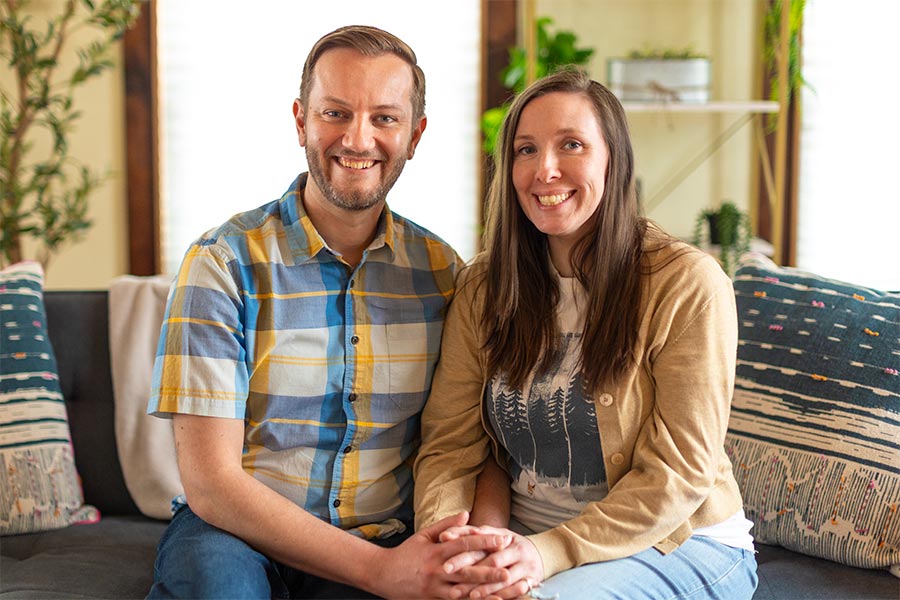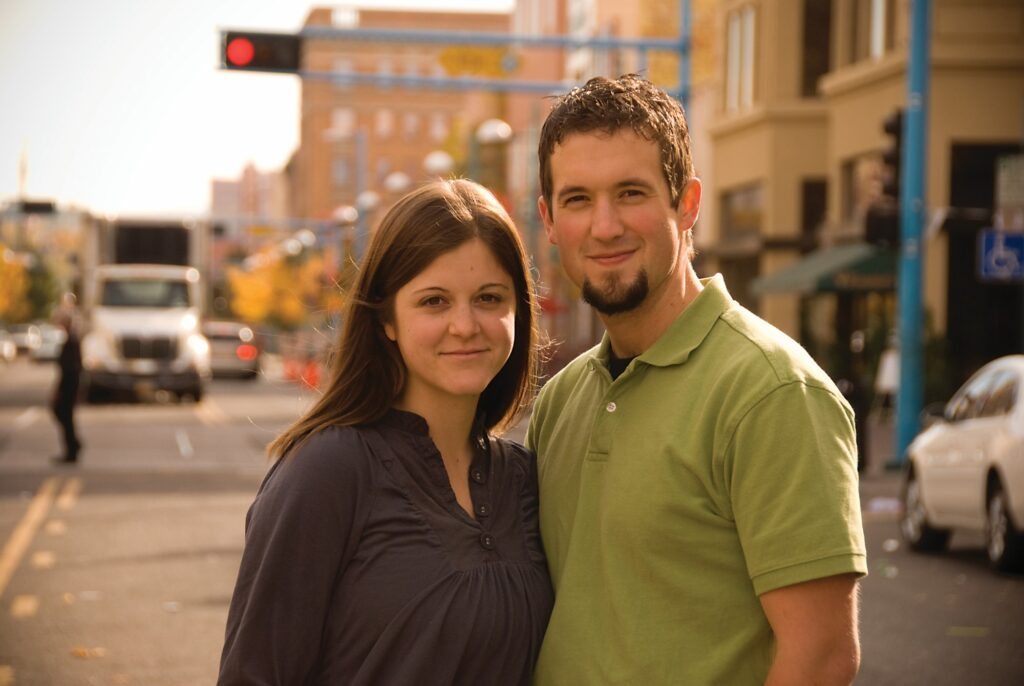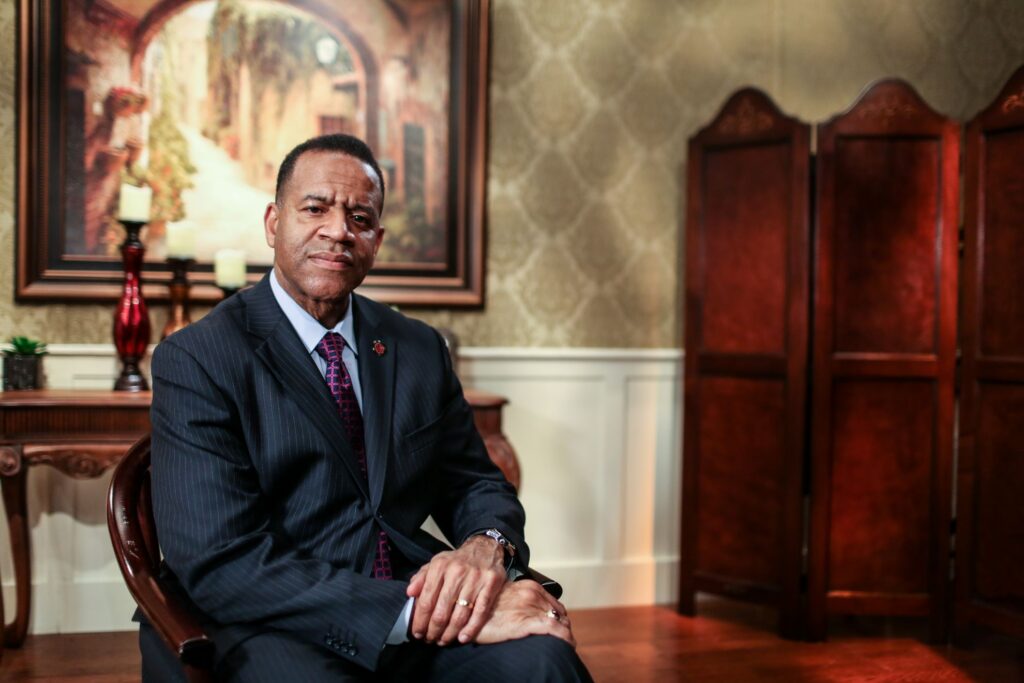
There are hundreds of thousands of children in foster care nationwide.
This is heartbreaking and has motivated many organizations to partner with their states to help these children find loving homes. Among those organizations are faith-based adoption and foster care providers like Catholic Charities West Michigan. But several states, including Michigan, have targeted faith-based providers and tried to block them from serving these children.
Here’s how one Catholic adoption and foster care ministry stood up to Michigan’s religious hostility, speaking up for the children who desperately need a loving home.
What is Catholic Charities West Michigan?
Catholic Charities West Michigan has been serving its community for over 70 years as one of the largest social service providers in western Michigan, and it has done so with excellence.
Just look at its foster care and adoption services, two of its largest programs. In the past 10 years, Catholic Charities West Michigan has placed approximately 4,500 children in loving homes.
But it doesn’t just place them. Catholic Charities West Michigan goes above and beyond to make sure the children entrusted to it are well taken care of—as well as their families. For example, Catholic Charities has paid for children to get braces and participate in equine therapy and martial arts. It also operates a house where children in foster care can spend time with their biological families, and adoptive families can spend time with the children they are looking to adopt.
Foster care and adoptive families can also take advantage of the other services that Catholic Charities provides, such as a food pantry.
All of this goes above and beyond what the state of Michigan pays for and provides.
Many of the families Catholic Charities works with share its view that serving the community and children in need is a cornerstone of their faith. And because Catholic Charities works with around 80 Catholic parishes throughout western Michigan, it has a wide network of families to participate in its foster care and adoption programs. That’s why Catholic Charities is particularly effective at placing sibling groups and children with disabilities.
Catholic Charities West Michigan v. Michigan Department of Health and Human Services
It should come as no surprise that Catholic Charities West Michigan, like other Catholic adoption and foster care agencies, operates according to the teachings and doctrines of the Catholic Church, including its beliefs about marriage.
Michigan even has a state law on the books that protects the rights of faith-based adoption and foster care agencies to do just that—run their ministries consistently with their beliefs.
But the Michigan attorney general did not want to follow that law.
In March 2019, the Michigan attorney general entered a settlement agreement with the American Civil Liberties Union (ACLU). Following that settlement, in April 2019, the attorney general said the state will no longer partner with faith-based adoption and foster care agencies that desire to place children in homes with a married mother and father according to their religious beliefs.
But the government cannot single out and punish these faith-based providers simply because it doesn’t like their beliefs.
That is something the U.S. Supreme Court made clear in its decision in Trinity Lutheran Church of Columbia v. Comer, which Alliance Defending Freedom argued. Not to mention that the U.S. Supreme Court has ruled twice—including in its decision on same-sex marriage—that the government must respect the belief that marriage is between one man and one woman.
That’s why ADF filed a lawsuit on behalf of Catholic Charities West Michigan.
To resolve the lawsuit, in March 2022, state officials agreed the child welfare provider can care for children according to its religious beliefs without government punishment.
As part of a stipulated court order and judgment, the Michigan Department of Health and Human Services conceded that it would violate the First Amendment to take any adverse action against Catholic Charities because the ministry prioritizes placing foster and adoptive children in homes with a married mother and father. The department also agreed to pay $250,000 toward the nonprofit’s attorneys’ fees and costs.
What’s at stake?
Eliminating faith-based adoption providers because of their beliefs will mean fewer organizations working to find children loving homes.
Michigan works with a number of foster care and adoption providers across the state to help children find loving homes. And protecting faith-based adoption and foster care providers does not interfere with other providers. It simply ensures that there are more providers working toward the best for children.
With approximately 13,000 children in foster care in Michigan, why wouldn’t the state want to use every resource at its disposal to help these children find loving homes?
Case timeline
- April 2019: ADF filed a lawsuit on behalf of Catholic Charities West Michigan.
- July 2019: A hearing was held on a motion for preliminary injunction against the state.
- June 2021: ADF filed a notice of supplemental authority explaining why the Supreme Court’s ruling in Fulton v. City of Philadelphia supports the preliminary injunction motion.
- March 2022: Catholic Charities and Michigan reached a settlement in which the state agreed that penalizing Catholic Charities for making child placements consistently with its religious beliefs violated the First Amendment.
The bottom line
Every child deserves the chance to be adopted or cared for by a loving foster family. Faith-based adoption and foster care providers that help children find a loving home should be celebrated, not targeted for their faith.




